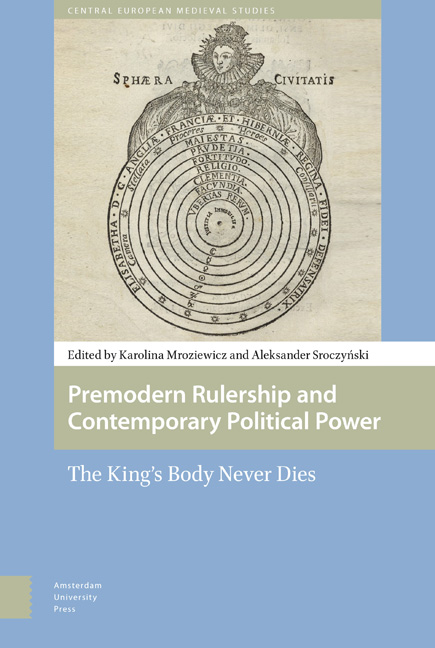The Exultet of Bolesław II of Mazovia and the Sacralisation of Political Power in the High Middle Ages
Published online by Cambridge University Press: 24 December 2020
Summary
We are informed by the texts of the Gospels that in this Church and in her power are two swords; namely, the spiritual and the temporal. […]
However, one sword ought to be subordinated to the other and temporal authority, subjected to spiritual power. […]
Therefore whoever resists this [papal, P.F.] power thus ordained by God, resists the ordinance of God [Rom 13:2]. […]
Furthermore, we declare, we proclaim, we define that it is absolutely necessary for salvation that every human creature be subject to the Roman Pontiff.
These strong views come from the well-known papal bull Unam sanctam of Boniface VIII (d. 1303), which dates to November 18, 1302, and was published and inserted into the Register of the Curia on August 15, 1303. In this document, the Roman Pontiff took up the idea of ‘two swords,’ symbolising the spiritual authority of the clergy and the temporal political power of the monarchs. The doctrine of the two swords, based on a peculiar understanding of Luke 22:28, was first formulated by Peter Damian (d. 1072), although the concept of dividing the world order into the spiritual authority of the clergy (auctoritas sacrata pontificum) and the temporal power of kings (regalis potestas) has a longer history. Nevertheless, after the death of Peter Damian, the idea of the two swords was elaborated by the followers of the German king and Roman emperor Henry IV (d. 1106) in order to legitimise and sustain the sacrality of his office when it was contested by the reformers of the Church. Nearly two centuries later, the doctrine of the two swords is found in the papal document quoted above, in which it was used to claim the superiority of spiritual power over temporal political power in a way that seemed to provide the pope with the kind of sacrality that was once contested by Gregory VII (d. 1086) and his followers. Thus, the so-called ‘Gregorian Reform’ did not fully unclothe the kings of their supernatural aura, and did not prevent the popes from investing themselves with royal splendour. In the present paper I will examine one of the often-marginalised agents who participated in this struggle, namely the secular rulers who were not anointed kings, and I will focus specifically on the neglected region of Mazovia.
- Type
- Chapter
- Information
- Premodern Rulership and Contemporary Political PowerThe King's Body Never Dies, pp. 73 - 110Publisher: Amsterdam University PressPrint publication year: 2017



